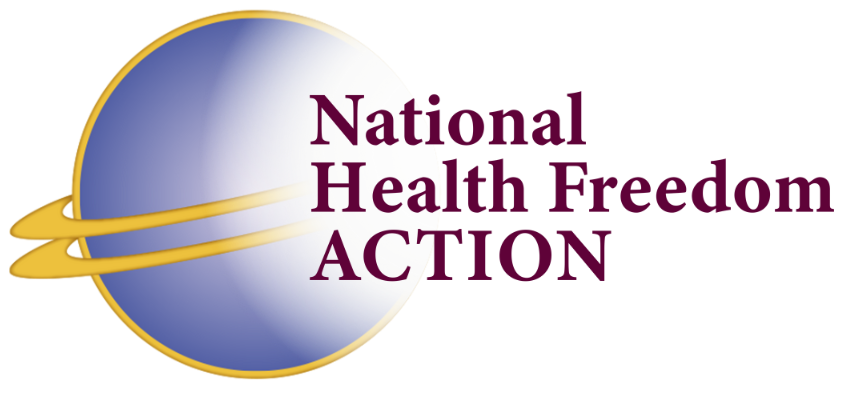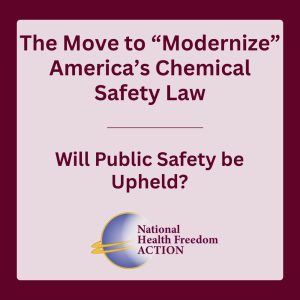
U.S. 5th Circuit Court of Appeals STAYS the OSHA Covid-19 Mandate and Protects the Liberty of Individuals to Make Intensely Personal Decisions According to Their Own Convictions
The case will now be sent to the Court of Appeals for the Sixth Circuit which will
decide whether to keep in place the stay that was ordered on Nov. 6th
On November 12, 2021, the United States 5th Circuit Court of Appeals followed up on their November 6, temporary STAY order, which had required further briefing and expedited judicial review, and firmly ordered that OSHA take no steps to implement or enforce its Covid-19 Vaccination and Testing Emergency Temporary Standard (ETS). Read Full Opinion Here.
The OSHA ETS (aka the Mandate) attempts to compel employers of two-thirds of all private-sector workers in the nation to (1) make employees get vaccinated or get weekly tests at their expense and wear masks; (2) “remove” non-complying employees; (3) pay per-violation fines; and (4) keep records of employee vaccination or testing status.
According to the Court’s order, the enforcement of this OSHA ETS remains STAYED pending judicial review by the Sixth Circuit U.S. Court of Appeals of the petitioners’ underlying motions for a permanent injunction.
The 5th Circuit Court termed it as “obvious”, that the Occupational Safety and Health Act was enacted by Congress to “assure Americans safe and healthful working conditions and to preserve our human resources”, and
“was not—and likely could not be, under the Commerce Clause and nondelegation doctrine—intended to authorize a workplace safety administration in the deep recesses of the federal bureaucracy to make sweeping pronouncements on matters of public health affecting every member of society in the profoundest of ways.” Cf. Ala. Ass’n of Realtors v. HHS, 141 S. Ct. 2485, 2488–90 (2021) (per curiam).
The Court likened the temporary standard to a “one-size-fits-all sledgehammer that makes hardly any attempt to account for differences in workplaces (and workers) that have more than a little bearing on workers’ varying degrees of susceptibility to the supposedly “grave danger” the Mandate purports to address.” Further, it pointed out that the underinclusive nature of the Mandate “implies that the Mandate’s true purpose is not to enhance workplace safety, but instead to ramp up vaccine uptake by any means necessary.”
The Court’s opinion is seminal to the future of our country. The boundaries between federal and state jurisdictions are fundamental to the architecture of our Constitution. In its opinion the Court sets out basic constitutional principles:
“First, the Mandate likely exceeds the federal government’s authority under the Commerce Clause because it regulates noneconomic inactivity that falls squarely within the States’ police power. A person’s choice to remain unvaccinated and forgo regular testing is noneconomic inactivity. Cf. NFIB v. Sebelius, 567 U.S. 519, 522 (2012) (Roberts, C.J., concurring); see also id. at 652–53 (Scalia, J., dissenting). And to mandate that a person receive a vaccine or undergo testing falls squarely within the States’ police power. Zucht v. King, 260 U.S. 174, 176 (1922) (noting that precedent had long “settled that it is within the police power of a state to provide for compulsory vaccination”); Jacobson v. Massachusetts, 197 U.S. 11, 25–26 (1905) (similar).” and;
“Second, concerns over separation of powers principles cast doubt over the Mandate’s assertion of virtually unlimited power to control individual conduct under the guise of a workplace regulation.”
The Court also pointed out the significant negative impact that such a Mandate would have:
“It threatens to substantially burden the liberty interests of reluctant individual recipients put to a choice between their job(s) and their jab(s). For the individual petitioners, the loss of constitutional freedoms ‘for even minimal periods of time . . . unquestionably constitutes irreparable injury.’ Elrod v. Burns, 427 U.S. 347, 373 (1976) (‘The loss of First Amendment freedoms, for even minimal periods of time, unquestionably constitutes irreparable injury.’)” and;
“…companies seeking a stay in this case will also be irreparably harmed in the absence of a stay, whether by the business and financial effects of a lost or suspended employee, compliance and monitoring costs associated with the Mandate, the diversion of resources necessitated by the Mandate, or by OSHA’s plan to impose stiff financial penalties on companies that refuse to punish or test unwilling employees.” and;
“The States, too, have an interest in seeing their constitutionally reserved police power over public health policy defended from federal overreach.” and;
“The public interest is also served by maintaining our constitutional structure and maintaining the liberty of individuals to make intensely personal decisions according to their own convictions—even, or perhaps particularly, when those decisions frustrate government officials.”
Finally, the Court closes by stating:
“But health agencies do not make housing policy, and occupational safety administrations do not make health policy. Cf. Ala. Ass’n of Realtors, 141 S. Ct. at 2488–90. In seeking to do so here, OSHA runs afoul of the statute from which it draws its power and, likely, violates the constitutional structure that safeguards our collective liberty.”
Our hope is that the 6th Circuit Court will grant a permanent injunction as a next step in protecting the personal liberty and health freedom rights of all Americans. Stay tuned!
RECENT NEWS

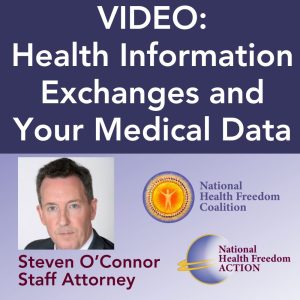
Video: Health Information Exchanges and Your Medical Data
February 5, 2026
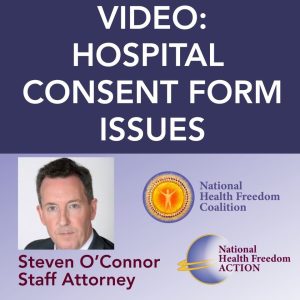
Video: Hospital Consent Forms and Health Freedom
January 29, 2026
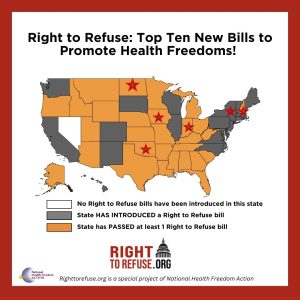
Right to Refuse: Top Ten New Bills to Promote Health Freedoms!
January 22, 2026
